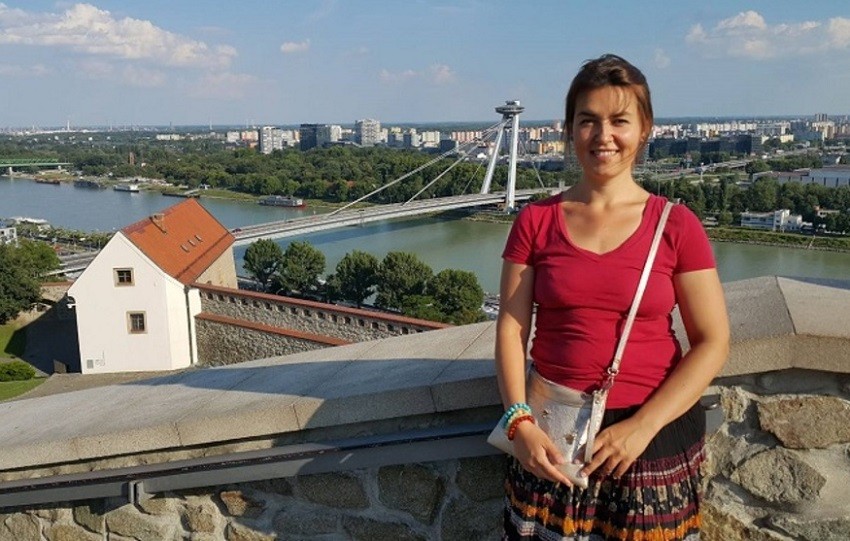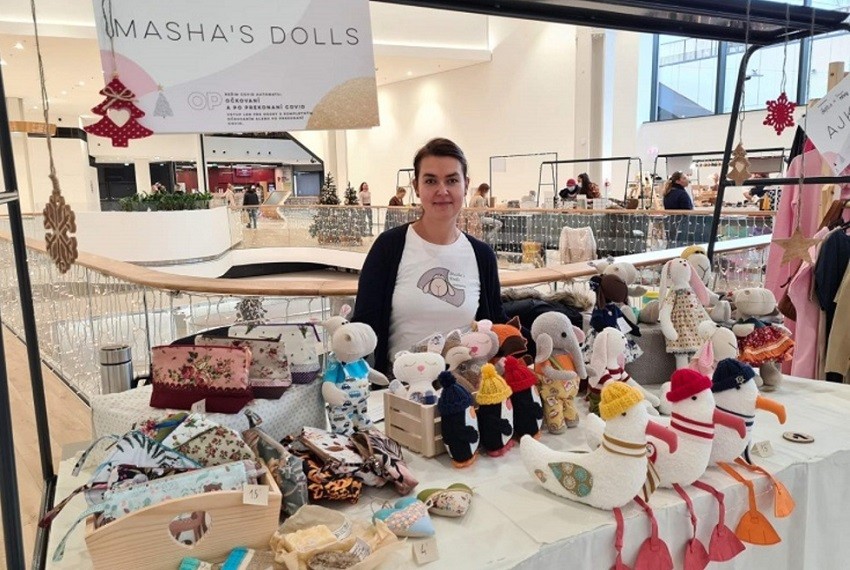The Slavic nations of Europe have quite a few things in common. We often find similarities in the origin of different words and their meaning, sometimes in traditions as well. We, Bulgarians tend to think of the capital of Czechia as a tourist destination, yet the capital of Slovakia does not seem to be as popular. Unlike Prague, Bratislava is not a city we associate with majestic cathedrals or amazing masterpieces of architecture, yet it has won the hearts of dozens of young people from Bulgaria who have chosen to live there.
One of them is Marina Stoycheva from Sofia who was invited to work in banking five years ago, and so moved to Bratislava. She was approved for the job because she speaks Bulgarian and Russian equally well. Her first manager at the bank was actually Bulgarian. In Slovakia there is a Bulgarian society, and the Bulgarian cultural club in Bratislava publishes a newspaper:
“Bulgarians here are a close-knit community, we have always helped one another, at least in my own experience,” Marina Stoycheva says in an interview with Radio Bulgaria and goes on:
“What brought me to Slovakia is work, then I married and now I am expecting my first child at the end of December. Until recently, my job was to analyze bank transactions. In Slovakia I started work at a Dutch company, and there my manager was Bulgarian. I learnt a lot from her, but the most important thing I learnt was that it doesn’t really matter what your university degree is in if there is something else that you are interested in, some other sphere in which you feel you will be useful because you can always undergo training. My degree in Bulgaria is completely different from banking.”

Marina Stoycheva says the most difficult thing to get used to in Bratislava are the low temperatures and the cutting wind in winter, but that the Christmas spirit is all-pervading from November:
“The Christmas bazaars are open for the first time in two years because they were cancelled due to the pandemic. I really love going there, they are very noisy, very colourful. An enormous Christmas tree is always put up in front of the presidential palace, and it is usually a tree with a history. I’ve been to Christmas bazaars in Sofia, but they are usually Austrian or German, people of my generation have not seen a typical Bulgarian Christmas bazaar, there might be though, just as there are Bulgarian Christmas songs.”
“We Bulgarians are warm-hearted and temperamental because of our Balkan mentality, and compared to Slovaks our way or expressing our feelings and moods is much more exuberant. Slovaks, on the other hand, are quiter and calmer, and that means life with them is quiter and much better organized,” Marina Stoycheva says and adds:

“I have a great affection for Slovaks, and when I go back to Bulgaria I see people who are noisy, welcoming, people who lay tables and bring out the rakia. Things are more modest here, they have a quiet hour, and on Saturday and Sunday it is not acceptable to mow the lawn at lunchtime so as not to make noise. I would like to see public transport in Slovakia, and the access to it, become a model for Bulgaria as well. In Bulgaria it is sometimes a risky venture, you may even have to jump onto a moving bus, for example, and for older people that is very difficult. Every country probably has problems with corruption but in Slovakia it is obvious enough money is being spent on infrastructure maintenance. Otherwise there is inflation here too and the cost of living has gone up though the food is not as expensive as it is in Bulgaria. I have noticed that in Slovakia, at the same supermarket chains as there are in Bulgaria, many of the items are much cheaper. I don’t see what the point is because I do not believe that Bulgarians are better off than Slovaks. But what I miss most is the food of Bulgaria – the fruit and vegetables here are not as delicious as they are in Bulgaria. I also miss the sea very much. The places I love best are Pomorie and Sozopol because of the spirit of the past they carry.”
De Là Trâp - this sonorous name attracted the attention of hip-hop culture fans in Bulgaria this year. For just two months, the joint project "333" with famous rapper 100 KILA collected nearly 1 million views on one of the video..
From the noisy kitchens of London restaurants with Michelin stars to a village hidden in the forests of the Rhodope Mountains, Petko Sharankov's path is full of twists and turns. After living for many years in the British capital where he mastered the..
As the BNR’s initiative “Awakener (enlightener) of the year 2024” enters its last stage, we present one of the most active volunteers from the Bulgarian community in Chicago, the US. Her name is Zhechka Geshovska, she was born in Dimitrovgrad in..

+359 2 9336 661
